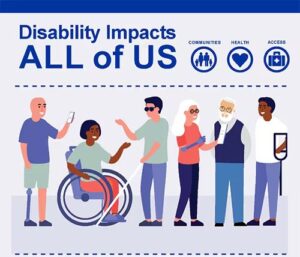I’ve been sitting through a 4 hour presentation by one of our state agencies focused on the healthcare needs of children and youth with disabilities. Every few seconds the director used the term “Special Needs”. At about 2.5 hours into the presentation I tallied how many times they used “special needs” in 5 minutes: 21 times!!! In all fairness, the term “Special Needs” is part of the name of this group within this state agency. I intend to send them a copy of this blog post and see if they would consider using more appropriate language when referring to children and youth in our state.
“Special needs” is an outdated term that has been widely used to describe individuals with disabilities. However, the disability community has been advocating for the use of more respectful and accurate language. As a platform that prioritizes the voices of individuals with disabilities, The WAA stopped using “special needs”. This article explains why the term is problematic and suggests alternatives.
The term “special needs” is a euphemism that avoids the word “disability,” implying that disabilities are negative. Disability is a natural part of the human experience and should not be stigmatized. Using “special needs” can be harmful, especially for children, as it can contribute to low self-esteem and reinforce negative stereotypes.
Many disability organizations and advocates have spoken out against the use of “special needs,” including the #SayTheWord campaign and the National Center on Disability and Journalism. The term is often used in a derogatory way, further highlighting its negative connotations. Research has also shown that people are viewed more negatively when described as having “special needs” compared to “having a disability.”
People with disabilities have the same needs as everyone else, but they may require different accommodations to meet those needs. These accommodations often benefit everyone, not just those with disabilities. The focus should be on creating an inclusive society where everyone’s needs are met, regardless of ability.
The WAA has updated its editorial standards to reflect this shift in language, replacing “special needs” with more appropriate terms. While older articles may still contain the outdated term, in the future they may be accompanied by a note explaining the change. The platform also allows user-generated content that may not adhere to these standards.
“Disabled” is not a bad word, and it is the preferred term within the disability community. By using respectful and accurate language, we can contribute to a more inclusive and accepting society for all.
This humerus awareness campaign created a few years ago shows exactly what’s wrong with saying “special needs.”
Thank you for standing with us for change and reminding those around you that people with disabilities have the same needs as everyone else, but they may require different accommodations to meet those needs.
In gratitude,
Arzu Forough, President/CEO of Washington Autism Alliance


